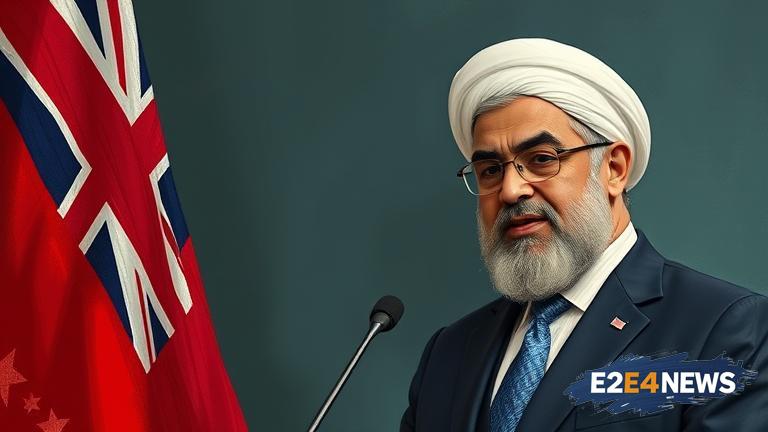In a bold move to condemn and address the growing wave of antisemitic violence, the Australian government has made the decision to expel the Iranian ambassador from the country. This action comes in the wake of a series of disturbing arson attacks targeting Jewish communities and institutions. The attacks, which have been linked to Iranian-backed elements, have sent shockwaves through the global community, prompting widespread condemnation and calls for action. The Australian government, known for its strong stance against antisemitism and its commitment to protecting the rights and safety of all its citizens, has taken this decisive step to underscore its intolerance for such hate-motivated crimes. The expulsion of the Iranian ambassador is seen as a significant diplomatic escalation, reflecting the seriousness with which Australia views these incidents. It also highlights the country’s resolve to stand in solidarity with the Jewish community, both domestically and internationally. The series of antisemitic arson attacks has not only caused physical harm and destruction of property but has also contributed to a climate of fear and insecurity among Jewish populations. These acts of violence are a stark reminder of the enduring presence of antisemitism and the need for vigilant action to combat it. The international community has been watching the situation closely, with many countries and organizations issuing statements of condemnation and support for the affected communities. The role of Iran in these incidents has been under scrutiny, with allegations of the Iranian government’s involvement in fostering and supporting antisemitic activities abroad. Australia’s decision to expel the Iranian ambassador sends a clear message about the consequences of supporting or engaging in such activities. The move is also expected to have implications for the broader diplomatic relations between Australia and Iran, potentially leading to further isolations or sanctions. Despite the challenges, the Australian government remains committed to its principles of protecting human rights and combating hate in all its forms. The Jewish community in Australia and around the world has welcomed the government’s firm stance, seeing it as a crucial step in the fight against antisemitism. However, the road ahead is long, and continued vigilance and cooperation among nations will be necessary to effectively combat and eradicate antisemitic violence. The situation also underscores the importance of international cooperation and the need for a unified front against hate and extremism. As the world grapples with the complexities of combating antisemitism, Australia’s actions serve as a model for other countries to follow. The impact of these arson attacks extends beyond the immediate communities affected, contributing to a global discourse on hate crimes and the importance of protecting minority rights. In response to the growing concerns, there have been calls for increased security measures to protect vulnerable communities, as well as for educational and awareness programs to combat the roots of antisemitism. The Australian government’s response has been multifaceted, including not only diplomatic action but also domestic initiatives aimed at enhancing community safety and promoting tolerance. As the investigation into the arson attacks continues, there is a growing expectation for accountability and justice for the perpetrators. The expulsion of the Iranian ambassador marks a significant point in this process, signaling that such acts will not be tolerated and that there will be consequences for those who support or engage in them. In conclusion, Australia’s decision to expel the Iranian ambassador over the series of antisemitic arson attacks is a strong statement of the country’s commitment to fighting hate and protecting its citizens. It reflects a broader global concern about the rise of antisemitism and the need for concerted action to address it. As nations navigate the complex landscape of international relations and global security, the importance of standing against hate and extremism will only continue to grow.
